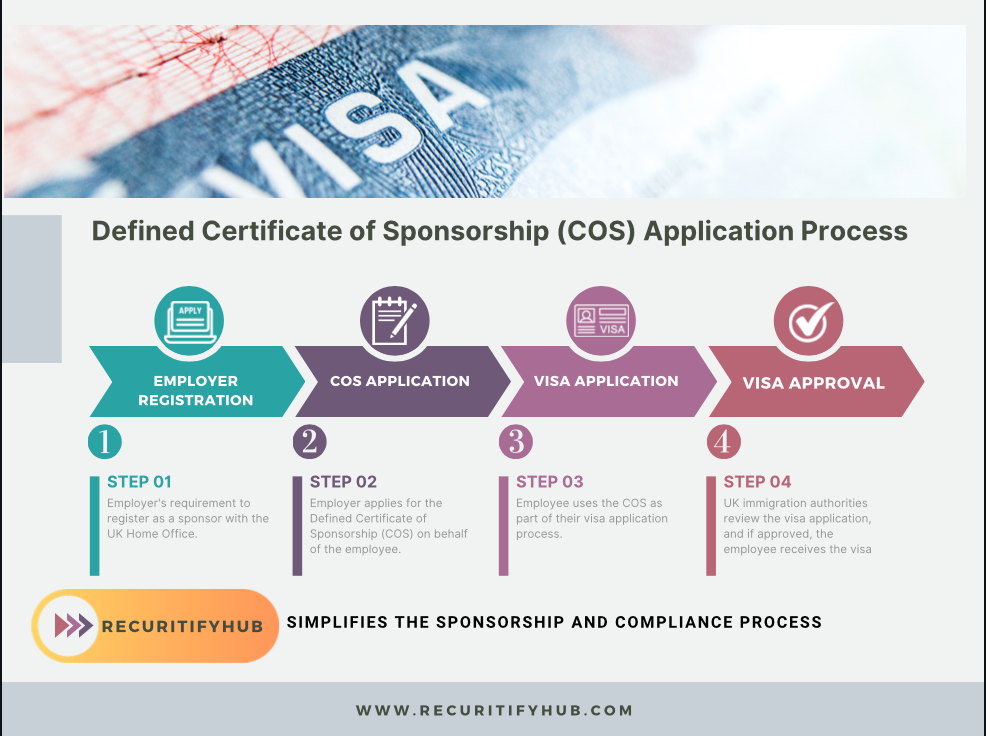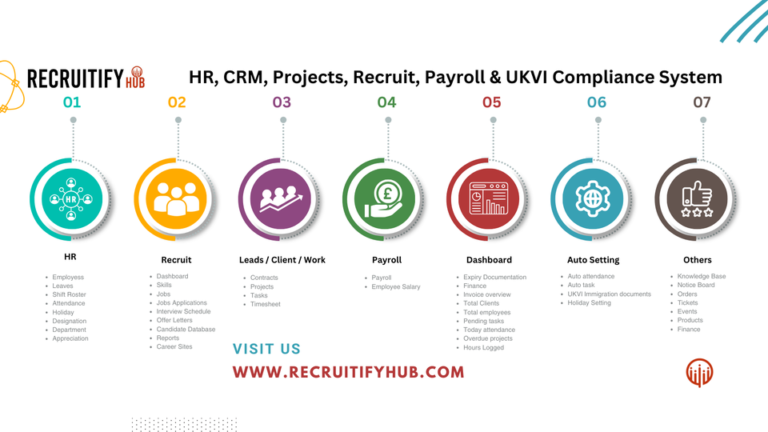Unlocking Potential: Benefits of a Defined Certificate of Sponsorship (CoS) in the UK
What is Defined certificate of sponsorship (CoS)
In the framework of the UK’s immigration system, a Defined Certificate of Sponsorship (CoS) is a crucial document, particularly for skilled professionals who desire to immigrate to the UK for job reasons.
Here's an explanation of what a Defined Certificate of Sponsorship (CoS) is:
- Purpose: A CoS is essentially a virtual document issued by a UK-based employer who seeks to hire a non-EEA (European Economic Area) or non-Swiss national. It acts as verification that the employer has satisfied certain standards and is authorised to sponsor a foreign worker for a certain job role.
- Sponsorship: An employer must be a registered sponsor with the UK Home Office in order to apply for a CoS. This signifies that the company has already showed a willingness to follow immigration rules and regulations.
- Job Offer: The CoS relates to a specific job opportunity from the sponsoring employer. It contains information such as the job title, job description, salary, location, and length of employment.
- Uniqueness: Each CoS has a unique reference number that can only be used for the job offer for which it was given.
- Visa Application: If someone possesses a valid CoS, they can use it to apply for a UK work visa. It is required when applying for a Tier 2 (General) or Skilled Worker Visa since it proves that the candidate has a valid employment offer from a licenced firm.
- Responsibilities: When using a CoS, both the employer and the employee have specific responsibilities. The company must ensure that the job offer and terms of employment are compliant with immigration rules, while the employee must meet the visa eligibility criteria and present the required supporting documentation.

A Defined Certificate of Sponsorship (CoS) is indeed a critical element within the UK’s immigration system, specifically designed to facilitate the entry of skilled professionals and workers into the country. Here are some additional points to further clarify the importance and nuances of a CoS:
Tier 2 (General) and Skilled Worker Visas: The CoS is primarily associated with Tier 2 (General) and Skilled Worker Visas, which are key pathways for skilled workers to come to the UK for employment. These visas are part of the UK’s points-based immigration system, and having a valid CoS is a crucial requirement.
Employer’s Responsibility: To obtain a CoS, an employer must demonstrate that they are offering a genuine job opportunity and meet specific requirements. This includes showing that they have conducted a Resident Labour Market Test, which involves advertising the job to the local workforce to ensure there are no suitable domestic candidates available for the position. Employers must also meet certain salary and employment conditions.
Maintenance Funds: In addition to the CoS, individuals applying for Tier 2 (General) or Skilled Worker Visas may also need to demonstrate that they have sufficient funds to support themselves and any dependents in the UK, as specified by the Home Office. This is to ensure that immigrants can financially support themselves during their stay in the UK.
Validity Period: A CoS has a limited validity period, usually lasting for a few months. This means that the sponsored worker must apply for their visa within this timeframe, or the CoS will expire, and they will need to request a new one if the job offer is still available.
Switching Employers: If a sponsored worker wishes to change employers in the UK, they generally need to obtain a new CoS from their new employer and apply for a new visa. The process for switching employers has specific requirements and conditions.
Dependents: Depending on the type of visa and individual circumstances, a CoS holder may be eligible to bring their dependents (spouse, partner, and children) to the UK with them. Each dependent will typically need their own visa, and the main CoS holder must prove that they can financially support their dependents.
Indefinite Leave to Remain (ILR): Skilled workers who have been in the UK for a specified period (usually five years) on certain work visas, including Tier 2 and Skilled Worker Visas, may become eligible to apply for Indefinite Leave to Remain, which is a step towards permanent residency in the UK.
In summary, a Defined Certificate of Sponsorship (CoS) plays a vital role in the UK’s immigration system by enabling skilled professionals to secure job opportunities in the country. It’s a document that signifies a genuine job offer from a licensed employer and is essential for obtaining work visas, ensuring Sponsorship Compliance with immigration rules, and eventually potentially achieving long-term residency in the UK.






